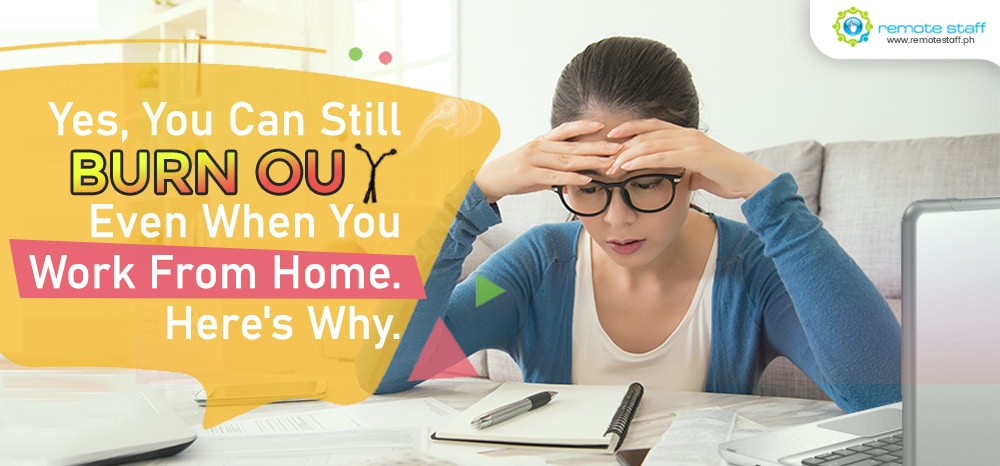Huh? Isn’t it a lot easier to arrive at a healthy work-life balance when you work from home?
Ah, if only it were that simple. While it’s true that it’s easier for WFH folk to take restorative naps as needed, they also tend to juggle multiple responsibilities at a time. That, and the fact that it’s harder to set boundaries in remote working can all take a toll on even the most disciplined worker.
How Do You Know If You’re Burned Out From Work?

You’ve seen what a burned out candle looks like, right? With all the wax melted down to a stump and the wick reduced to mere black stub? A candle like that won’t give off any light and heat no matter how long you hold a flame to it, eh?
It’s not so different for human beings. Herbert Freudenberger defines “burnout” as “the extinction of motivation or incentive, especially where one’s devotion to a cause or relationship fails to produce the desired results.”
Basically, it’s when you feel like you’ve used up all your fuel, so to speak. You may feel exhausted all the time, indifferent or resentful towards your job, and you may lack the motivation to do anything productive more often. There could be some physical symptoms too, such as headaches, stomachaches, or intestinal issues.
Burnout is often associated with far too many hours spent at work, but other factors can contribute to it as well. For instance, perfectionism and pessimism can aggravate the stress you encounter at work. Furthermore, abrupt lifestyle changes can also leave people feeling off-center and thus more prone to burnout than usual.
WFH Risk Factors
So, which aspects of a remote working set-up could potentially lead to burnout? Let’s take a look:
- Lack of clear boundaries.
- Diminished social connections.
- Pressure to be “the perfect worker.”
- Feelings of powerlessness.
- Insufficient self-care.

When you work in an office, the boundaries are clear. The moment you set foot inside the workplace, you put your work face on and leave your domestic concerns behind. Conversely, you (ideally) leave work behind once you set off for home at the end of the day.
With remote working, it’s not as easy to draw the line between your personal and professional life. This is partly because the place where you live and work is one and the same.
Hence, if you never turn off your computer (or worse, work in bed), it’s all too easy to work around the clock. Before you know it, that “Hey, you got a second?” from your boss or colleague can turn into an all-nighter.

Sure, introverts thrive in an environment that allows them to work uninterrupted for long stretches of time. However, not all remote workers are such, and even those who are might occasionally long for a work buddy to celebrate or commiserate with. After all, shared joys and sorrows are doubled and halved, respectively.
Unfortunately, working from home can feel isolating, even when you’re doing so in a house full of people. Without fairly regular communication with your colleagues and/or boss, you can feel detached or left out of the loop.

This is especially true in times of crisis, such as when your company or client is laying off people to stave off bankruptcy or so. Since remote workers are less visible than their office counterparts, there’s pressure to constantly be online. Some may even feel that they shouldn’t turn down tasks or projects either.

There might be days when there are too many things happening at once. You might have a pressing deadline in the afternoon just when your faucet conks out and is in need of immediate repairs. And is that your child’s teacher calling to request a parent-teacher conference?
Granted, WFH won’t make things so clear-cut. However, not having a schedule that designates time for work, family, and self-care is a recipe for burnout.

Speaking of self-care, this is especially important when you work from home. Multi-tasking might be necessary in some cases, but if you do it too often, it’ll make you lose focus, discipline, and motivation everywhere else.
The point is, anyone can suffer from burnout. There’s no shame in it, certainly, and it can occur to you whether you work from home or go to an office daily.
Fortunately, though, you can guard against it. The factors enumerated above ought to help you know what to look for, and in effect, figure out how to lessen the risks of burning out on the job.

